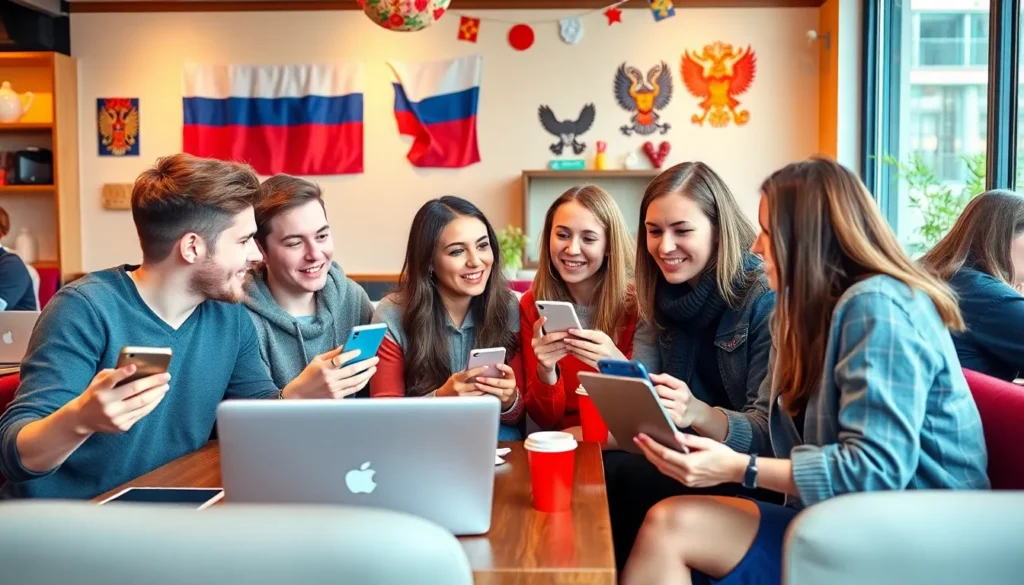
In a world where social media reigns supreme, Russian platforms offer a unique twist that’s as captivating as a vodka-fueled dance party. From the meme-filled corridors of VKontakte to the lively debates on Odnoklassniki, these platforms reflect the vibrant culture and spirit of the nation. But don’t let the Cyrillic script intimidate you; there’s a treasure trove of content waiting to be explored. As the digital landscape evolves, Russian social media isn’t just a curiosity—it’s a powerhouse of influence. With millions of users sharing everything from cat videos to political commentary, it’s a fascinating blend of tradition and modernity. Dive into the world of Russian social media and discover how it shapes opinions, trends, and even the occasional bear meme. Get ready for a journey that’s both enlightening and entertaining, proving that social media knows no borders.
Russian Social Media
Russian social media platforms, including VKontakte (VK) and Odnoklassniki (OK), play a significant role in the digital landscape. VKontakte serves as a multifaceted platform, offering features similar to Facebook, such as messaging, music sharing, and content creation. Odnoklassniki appeals to an older demographic, focusing on reconnecting individuals from school and other educational settings. Content diversity characterizes these platforms. Users share a wide range of materials, including videos, articles, and photographs. Engaging communities often form around specific interests, enabling users to connect meaningfully. The cultural significance of VK and OK cannot be overstated. VK has effectively become a hub for youth culture, while Odnoklassniki fosters nostalgia and communal ties among older generations. In contrast to Western social media, these platforms emphasize local connections and cultural context. Influence on public opinion is another critical aspect of Russian social media. Amidst a complex political and social environment, platforms serve as outlets for free expression, discussion, and debate. Users actively participate in conversations regarding social issues, helping shape public sentiment and trends. Notably, other social platforms like Telegram and Yandex have gained traction. Telegram provides a secure messaging service, appealing to users desiring privacy. Yandex, primarily a search engine, also offers social features, blending traditional web use with social aspects. Overall, the rich tapestry of Russian social media reflects both the country’s unique cultural identity and its changing dynamics in the digital age. These platforms continue to evolve, shaping how individuals engage with one another and the world around them.Popular Platforms in Russia



